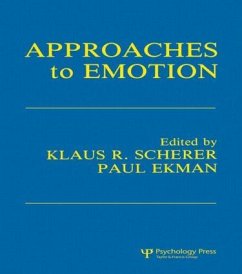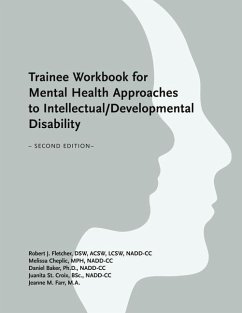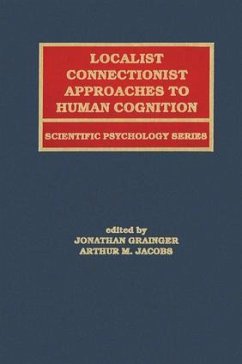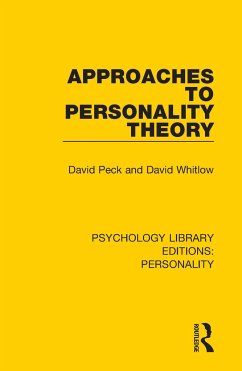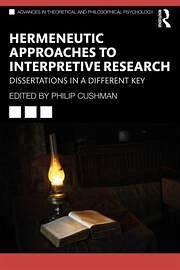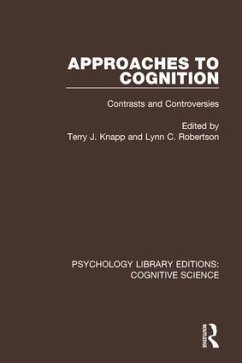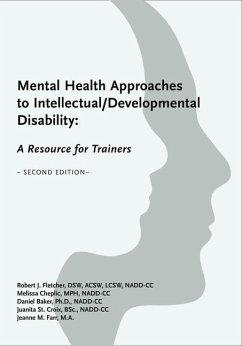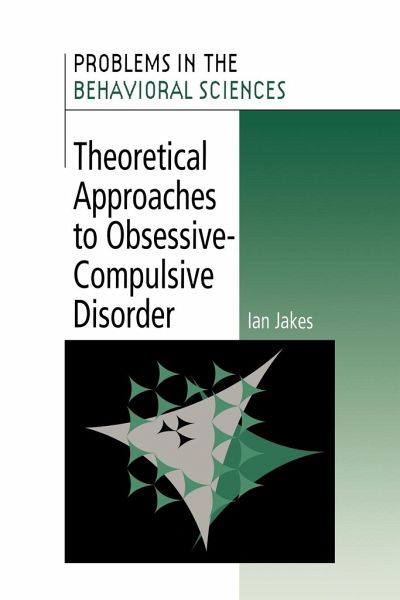
Theoretical Approaches to Obsessive-Compulsive Disorder
Versandkostenfrei!
Versandfertig in 1-2 Wochen
57,99 €
inkl. MwSt.

PAYBACK Punkte
29 °P sammeln!
This book offers a critical discussion of the most important theories which have been put forward to explain obsessive-compulsive disorder.Obsessive-compulsive disorder is currently the subject of considerable research, since recent epidemiological studies have suggested that the condition is more prevalent than was originally believed. This book offers a critical discussion of the most important theories that have been put forward to explain this disorder. The book includes behavioural/learning accounts (and cognitive-behavioural supplements of these), based on Pavlovian personality theories ...
This book offers a critical discussion of the most important theories which have been put forward to explain obsessive-compulsive disorder.
Obsessive-compulsive disorder is currently the subject of considerable research, since recent epidemiological studies have suggested that the condition is more prevalent than was originally believed. This book offers a critical discussion of the most important theories that have been put forward to explain this disorder. The book includes behavioural/learning accounts (and cognitive-behavioural supplements of these), based on Pavlovian personality theories (such as those by Eysenck, Gray and Claridge), Pierre Janet's account, cybernetic approaches, psychodynamic approaches, Reed's 'cognitive-structural' account, and biological approaches. Therapeutic approaches to the disorder are also considered, insofar as they are relevant to these theories. This book is unique in both the comprehensiveness and the depth of its coverage of theories of OCD. It also offers an entirely new approach to the definition of the disorder.
Review quote:
'- most impressive study - Jakes's insight is profound - I can strongly recommend this book. Ian Jakes has left us much to think about.' Frederick Toates, Behavioural Research Therapy
Table of contents:
Synopsis; Acknowledgments and provenance; 1. The natural history and definition of obsessive-compulsive disorder; 2. Behavioral/learning accounts of OCD; 3. Accounts of OCD based upon personality theories derived from the work of Pavlov; 4. Janet on OCD; 5. Psychodynamic approaches to OCD; 6. Cognitive style/deficit approaches to OCD; 7. Biological approaches to OCD; 8. Concluding remarks; References; Author index; Subject index.
Obsessive-compulsive disorder is currently the subject of considerable research, since recent epidemiological studies have suggested that the condition is more prevalent than was originally believed. This book offers a critical discussion of the most important theories that have been put forward to explain this disorder. The book includes behavioural/learning accounts (and cognitive-behavioural supplements of these), based on Pavlovian personality theories (such as those by Eysenck, Gray and Claridge), Pierre Janet's account, cybernetic approaches, psychodynamic approaches, Reed's 'cognitive-structural' account, and biological approaches. Therapeutic approaches to the disorder are also considered, insofar as they are relevant to these theories. This book is unique in both the comprehensiveness and the depth of its coverage of theories of OCD. It also offers an entirely new approach to the definition of the disorder.
Review quote:
'- most impressive study - Jakes's insight is profound - I can strongly recommend this book. Ian Jakes has left us much to think about.' Frederick Toates, Behavioural Research Therapy
Table of contents:
Synopsis; Acknowledgments and provenance; 1. The natural history and definition of obsessive-compulsive disorder; 2. Behavioral/learning accounts of OCD; 3. Accounts of OCD based upon personality theories derived from the work of Pavlov; 4. Janet on OCD; 5. Psychodynamic approaches to OCD; 6. Cognitive style/deficit approaches to OCD; 7. Biological approaches to OCD; 8. Concluding remarks; References; Author index; Subject index.





